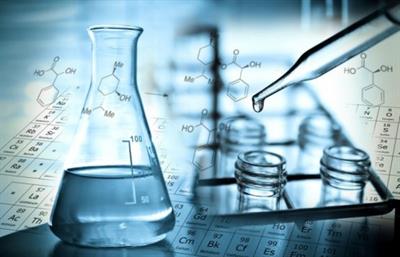Top Tips for Choose Reliable Vendors of High-Quality Chemical Products
Top Tips for Choose Reliable Vendors of High-Quality Chemical Products
Blog Article
Trick Considerations for Selecting the Right Chemical Products to Attain Effective Integrated Solutions in Your Procedures
Selecting the appropriate chemical products for integrated remedies in procedures needs a diverse approach that encompasses numerous crucial factors to consider. From assessing chemical compatibility to ensuring adherence to governing standards, each aspect plays a pivotal duty in enhancing functional performance and safety. Assessing environmental impacts and supplier integrity can not be forgotten in this elaborate decision-making process. As organizations aim to boost their practices, the interaction of these elements raises vital inquiries regarding finest methods and potential challenges that warrant additional expedition.
Comprehending Chemical Compatibility

To evaluate compatibility, one must think about variables such as the chemical residential or commercial properties of the compounds involved, consisting of pH, focus, temperature, and the presence of contaminations. Making use of compatibility graphes and data sources can offer valuable insights into possible communications. In addition, conducting small tests can help recognize unanticipated responses that may not be recorded.
Elements such as moisture, light exposure, and temperature can influence the stability and reactivity of chemical products. By prioritizing chemical compatibility throughout the option procedure, organizations can improve operational effectiveness, minimize the risk of crashes, and make sure conformity with safety and security procedures.
Reviewing Governing Conformity
In the complicated landscape of chemical product choice, evaluating regulatory conformity is extremely important to making certain not only safety and security however likewise lawful adherence. Organizations needs to browse a myriad of regulations, from local and nationwide legislations to worldwide standards, that govern the use, storage space, and disposal of chemical compounds. This requires a thorough understanding of appropriate regulations such as the Occupational Safety and Wellness Management (OSHA) standards, the Environmental Protection Agency (EPA) standards, and the European Union's Registration, Assessment, Authorisation and Limitation of Chemicals (REACH)
When choosing chemical products, it is important to confirm that vendors offer Safety Information Sheets (SDS) that information prospective risks and taking care of needs. Companies should validate that the chemicals conform with industry-specific policies, which might impose extra stipulations. Non-compliance can bring about serious fines, including fines and functional shutdowns.
Additionally, companies ought to remain updated on regulatory adjustments, as non-compliance can develop from outdated practices. Creating a robust conformity strategy, consisting of regular audits and employee training, can aid make sure adherence to current laws. Eventually, focusing on regulatory compliance not just mitigates danger yet also boosts the organization's online reputation and operational effectiveness.
Assessing Environmental Impact
How can companies successfully evaluate the ecological effect of chemical products during the option process? Organizations needs to begin by identifying the prospective hazards linked with each chemical, consisting of toxicity, perseverance in the atmosphere, and bioaccumulation potential.
Furthermore, organizations can take advantage of third-party accreditations and eco-labels that suggest conformity with environmental standards - Chemical Products. Involving with suppliers who focus on sustainability practices can additionally enhance the option process. It is crucial to examine not just the direct results of chemical usage yet also the indirect effects, such as energy consumption and waste generation
Carrying out life cycle evaluation (LCA) techniques can offer detailed understandings into the environmental impact of chemical items, highlighting locations for enhancement. By focusing on openness and collaboration with stakeholders, companies can make enlightened choices that align with their sustainability goals while reducing negative environmental outcomes. This proactive technique eventually cultivates an extra accountable and eco-conscious functional framework.
Examining Cost-Effectiveness
While evaluating chemical products for operational use, organizations need to likewise think about cost-effectiveness as a vital element in the option procedure. This entails assessing not just the initial purchase cost however likewise the total cost of possession, that includes factors such as use effectiveness, maintenance, and disposal costs. Chemical Products. A product that appears inexpensive upfront might incur greater expenses in energy intake or need even more constant substitute, eventually impacting the bottom line
In addition, organizations need to analyze the potential for expense financial savings through enhanced see post solutions that enhance performance and lower waste. Items that require lower application rates or use faster handling times can lead to substantial financial savings over time. It is also necessary to this content consider the effect of regulative conformity expenses, as non-compliance can cause fines and enhanced operational expenditures.
Moreover, organizations should examine the lasting worth originated from the chemical products, including enhanced high quality, boosted performance, and boosted safety and security. A thorough cost-effectiveness evaluation empowers companies to make educated decisions that align with both their economic objectives and operational purposes, ultimately leading to lasting and reliable techniques.
Identifying Provider Reliability
Supplier reliability is critical when choosing chemical items for procedures, as it straight influences both product high quality and operational effectiveness. A trusted supplier consistently delivers premium products on time, guaranteeing that your procedures continue to be uninterrupted.
Next, take into consideration the distributor's background of conformity with policies and standards. A trusted provider should have a durable quality control program that sticks to industry standards. Furthermore, assess their ability to give technical support and product details, which is vital for informed decision-making.

Verdict
In conclusion, picking the appropriate chemical find out this here products for incorporated solutions necessitates a comprehensive assessment of a number of essential variables. Recognizing chemical compatibility, making certain governing conformity, evaluating environmental impacts, analyzing cost-effectiveness, and recognizing dependable suppliers collectively add to notified decision-making.
Report this page